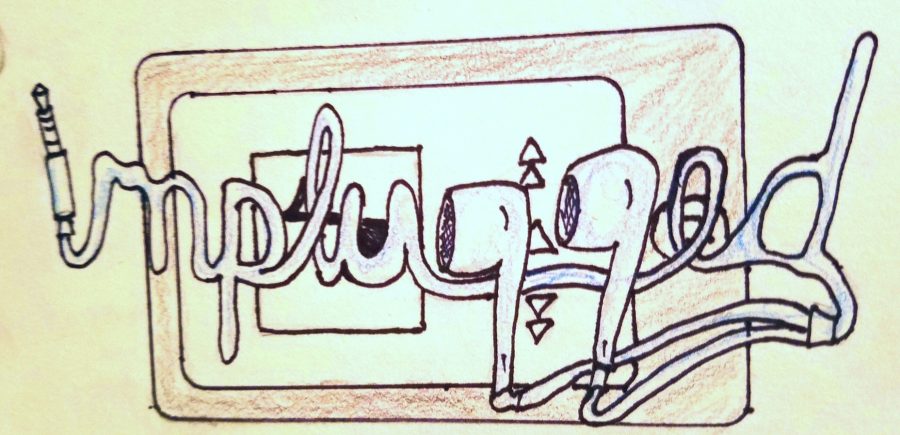Stop and Face the Music: Pressing Pause on Music-Multitasking
February 17, 2017
In a world where chatter and clatter dominate, many find refuge in listening to music.
Because students often flock to public spaces to study, putting the ear buds in is a universal sign to respect one’s solitude. By blocking out background noise, students attempt to internalize the learning process while engaging with song lyrics. In fact, listening to music while performing tedious tasks, such as flipping through flashcards or deleting old emails, increases happiness and productivity. After conducting various studies, researchers have also found that listening to music while doing schoolwork improves attention span and memory skills, as well as reduces the risk of teenage depression.
With jam-packed schedules, the only time that teenagers can listen to their favorite songs is while doing homework. Contemplating the best time to listen to music, Esther Zhang ‘18 proclaims, “It really depends. If I can get the homework done really quickly, there’s no point.”
Of course, some students never form the habit of completing homework with music. Sreekar Madabushi ‘20 admits that he does not multitask, asserting, “I never really got into it. Most of the songs on my phone are like 3 years old anyway.”
When listening to music, students also feel inclined to constantly update their collections to keep up with the latest trends, further distracting themselves from homework.
Wanting to find out how music impacts me and to fully reconnect with my schoolwork I set out to deprive myself of music for a week in the spirit of inquiry and experiment. Given that I couple all of my daily tasks with music, foregoing this habit seemed daunting at first. I prepared myself for some extremely boring- and silent- nights.
Beginning on Tuesday, I encountered my first obstacle at the media center. While using the computer, my hands twitched as I heard people laugh and talk behind me. My biology assignment, sprawled out on my screen, stared blankly at me as I tried to block out the noise. The prospect of completion seemed impossible! Without music, I had popped my bubble of silence, leaving me vulnerable to… the music of the real world. Half an hour passed, and my eyes met only two scribbled answers. Finally, I promised myself that I would listen to one song after working for 20 minutes—a poorly disguised study break.
Wednesday through Friday progressed similarly: 20 minute periods of study time, each interrupted by desperate visits to YouTube to pull up my favorite songs. In fact, many college students call this the Pomodoro Method: set a timer, preferably in the shape of a pomodoro (tomato in Italian) to 20 minutes, work intensely in that time, and then take a 5 minute break to relax.
The weekend provided ample time to listen to music and address my homework. By Monday, I had adjusted to working without my music.
Overall, studying without music effectively removed external variables, only to emphasize the dryness of homework. Music’s absence stripped my study sessions of color, and this week has only exacerbated my addiction to streaming music while doing work.
With this experiment, the examination of music comes into further question. Do we listen to music as a safeguard against the world or for its art?
We wield it as a tool, hoping that it will make the schoolwork process more efficient. In this high-paced society, multitasking is perceived differently—some revere it and others condemn it as a side effect of instant-gratification. Nonetheless, music interweaves itself into our lives, whether it serves as a jam session before bed or fuel for last-minute crams.

